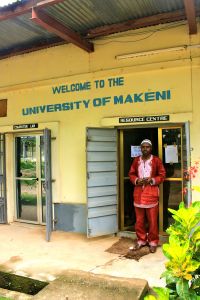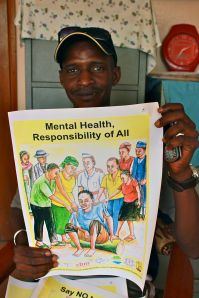Recent estimates from the World Health Organisation (WHO) report an increase in the global burden of disease attributable to mental disorders. However, about four out of five people in low- and middle-income countries (LMIC) in need of mental health services do not receive them.
Social interventions have the potential to fill the treatment gap for people experiencing mental distress in low and middle-income countries. As we are learning from the UK-based pilot study of the Connecting People Intervention (CPI), social interventions can improve the quality of life and community engagement for people with mental health problems. Previous work exploring social capital interventions in India and Malawi suggests the CPI could benefit low-income communities where enhancements to mental health services have potential to boost community development thereby decreasing health inequalities.
International research is an opportunity to share knowledge across boundaries to evaluate social interventions in different international social, cultural and economic environments. To address this need we are exploring ways in which the social capital principles of the CPI can be adapted and translated to LMIC.
In Sierra Leone, where an estimated 13 per cent of the adult population suffers from a mental disorder and there exists only one trained psychiatrist for a population over 4 million, we have begun working with collaborators from King’s Sierra Leone Partnership to address significant barriers to mental health care.
Funded by the Wellcome Trust and the University of York via the Centre for Chronic Diseases and Disorders (C2D2), researcher Meredith Newlin and colleague Dr Susie Whitwell from King’s Centre for Global Health, visited Sierra Leone in July 2013 to explore how social interventions can help to meet the needs of people with mental health problems. Preliminary findings from the feasibility study indicated significant need for psychosocial skill training to strengthen the care available to adults with mental health problems. Feedback on the adaptation of the CPI was positive and will continue in the second phase of our work in Sierra Leone.
The second phase of the research, funded by the Maudsley Charity, will be to continue building an evidence base for the translation of social interventions to low-resource settings. To ensure an iterative approach we are working collaboratively with key stakeholders in Sierra Leone to adapt the CPI model to the local communities and build capacity of mental health workers through a co-produced training programme.
Stay tuned for more information about each stage of the international research and links to upcoming publications.





